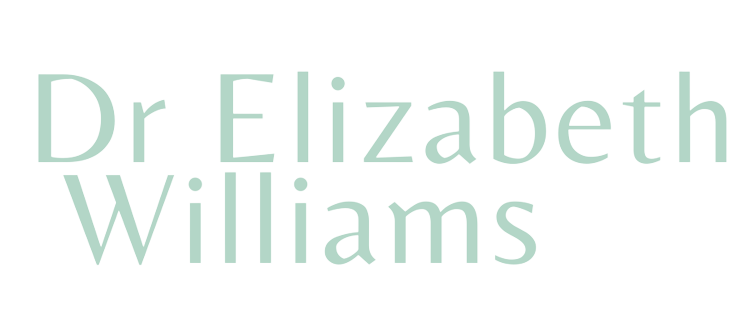Being a Woman is Not a Medical Condition
Nelly, a long time patient of mine, came in with a new issue – she’d been having uterine bleeding non-stop for months. Her gynecologist ran her through the gamut of tests, declared her “normal”, then proceeded to recommend a hysterectomy.
Unfortunately, this is a common story among women. And look, there are times that a hysterectomy is the best choice. But hysterectomies are one of the most common surgeries done in the US, and at least 20% of them are completely unnecessary. In many cases, less invasive options are the better choice – a choice that women aren’t made aware of.
In Nelly’s case, because we already knew that she didn’t have any serious underlying conditions causing her bleeding, we did some acupuncture. One treatment stopped the bleeding and reset her cycle. She’s had normal periods ever since.
In the Beginning
Becoming a woman at menarche (your first period) is shrouded in secrecy. It’s something that happens to all of us and should be cause for celebration. After all, this menstrual fluid is literally the lifeblood of the human race. Without it none of us would exist. Instead, it becomes an annoyance, bringing discomfort, shame, and even pain to the experience of being a woman.
And to cope with the discomfort and pain we’re given medications. If our pain is severe, or our flow is extra heavy, we might be put on the pill. If our periods become irregular we’re again offered hormonal contraceptives to “regulate” our cycle.
In fact, even if we don’t have severe issues with our cycle, we’re still encouraged to use hormonal birth control so that we don’t get pregnant. Women en masse are being put on the only drug in existence that was made specifically to stop a completely normal physiological function in our bodies.
Be My Baby
But what if we want to get pregnant and are struggling? The pill won’t help us there. So instead we’re loaded up with fertility drugs and given invasive tests and procedures. Again, women aren’t given all the information they need to make an informed decision. We aren’t told that the pill depletes the very nutrients that our babies need the most from us. We’re told to take the pill right up to the time we want to get pregnant, and that it won’t interfere with that process. And if we do have an underlying reproductive health challenge, the only option we’re given is assisted reproductive technology (ART).
When we’re finally able to get pregnant, this is a medical event in itself. Lots of tests and scans to check on our progress. And then we get to labor and childbirth. We’re taken to the hospital, given an epidural and told to lay down. Never mind that moving and squatting are actually much more beneficial positions. Now we’re even given the option to skip all that tedious labor stuff and just schedule a c-section. We wouldn’t want the baby to come unexpectedly and disrupt our plans!
The Transition
Then comes menopause. If you’re lucky enough to not have had a hysterectomy by then, you’ll hopefully go through natural menopause, with all the temporary hormone fluctuations that come with it. To deal with the symptoms of these changes, you may again be prescribed more hormones. And if you go through the sudden menopause that a hysterectomy brings, you’re even more likely to need hormone replacement.
Periods. Pregnancy. Childbirth. Menopause. Four things that are completely normal, that most women experience in their lifetimes, and that don’t happen to men (afab’s excluded). We can only assume that if men did have to deal with these issues, they would be celebrated. And I’m sure they would’ve figured out much better solutions to the challenges that can sometimes crop up around these events.
What Do I Do?
Unfortunately, the only options most women are given when their reproductive health needs some work are hormonal contraceptives, hormone replacement, or surgery. Sometimes these are the best option, but other times they are not. Yet women aren’t getting the full story from their doctors.
When our hormones are out of whack, our bodies send us signals in the form of uncomfortable symptoms. If we know how to read the signs, there are lots of things we can do to rebalance hormones before they become a huge issue. Many of these things involve lifestyle changes we can do on our own. And other times we need some professional help. This professional help could come from an acupuncturist and herbalist, a chiropractor, or even a functional medicine practitioner. These professionals learn tools to help balance hormones naturally, without the use of the pill or surgery. These tools will actually improve your overall health so that you feel better in your body, as opposed to pills and surgery which sometimes come with side effects.
It’s true that male and female bodies function differently. We have different needs and different challenges. But different doesn’t mean bad. Being a woman is not a medical condition, and it’s high time we got the memo!
Author:
Dr. Elizabeth Williams, DACM, LAc, is an acupuncturist, herbalist, and Doctor of Chinese medicine. She is the founder of Women’s Wellness Movement, an online community of women dedicated to improving their health naturally. Her work includes reproductive health, gut imbalances, mental health, complex chronic illness, and the ways these interact uniquely in each individual.











Dehydration can cause all kinds of acute and chronic symptoms. Some, like headaches and constipation, are familiar friends. But it’s less known that chronic dehydration of cells and tissues in your body can cause the feeling you get when you feel “old”. Like when you’re stiff and creaky getting out of bed in the morning, not able to remember things like you used to, and that general sense of feeling toxic or inflamed. It would seem then, that the best way to feel younger and more energetic is to drink more water. Boy I wish it were that simple. But as I’ve (and perhaps you’ve?) experienced, gulping extra water mostly just leads to more trips to the bathroom.